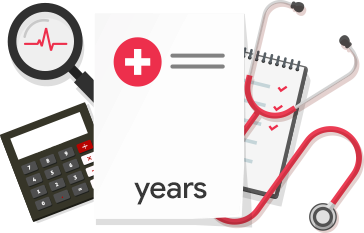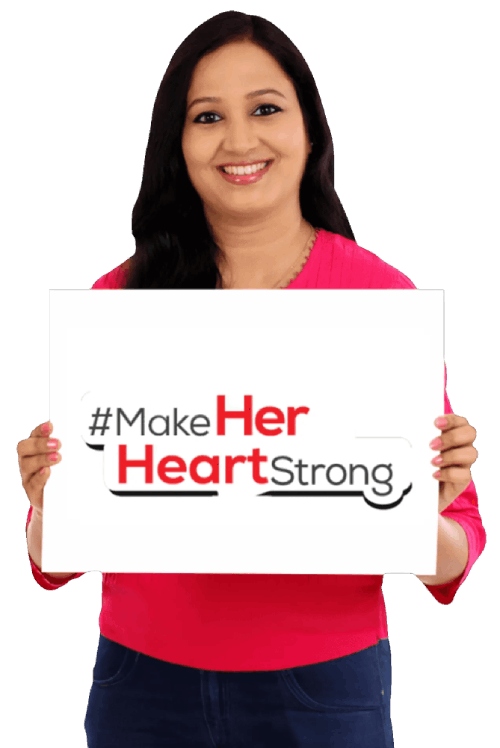.svg)


DID YOU KNOW?
In India, the average age of the first myocardial infarction (MI), or heart attack, has dropped by 20 years
Is your heart as young as you feel?
.svg)
.svg)
.svg)
.svg)
.svg)
.svg)
.svg)
.svg)
.svg)
.svg)
.svg)
.svg)
.svg)
.svg)
.svg)

.svg)
.svg)
.svg)

.svg)
.svg)
.svg)
.svg)
.svg)
.svg)
.svg)
.svg)
.svg)
Select
your age
30 years old
.svg)
Select
your sex at birth
.svg)
Do you have cardiovascular disease?
.svg)
Do you
smoke?
.svg)
Enter
your height
90 cm
.svg)
Enter
your weight
0 kg
.svg)
Have you
been diagnosed with type 2 diabetes?
.svg)
Have you
been diagnosed with rheumatoid arthritis?
.svg)
Have you
been diagnosed with chronic kidney disease?
.svg)
Have you
been diagnosed with atrial fibrillation?
.svg)
Do you
have a close relative (mother, father, sister or brother) under 60 who has
cardiovascular disease?
.svg)
Do you
know your cholesterol?
.svg)
Do you
know your blood pressure?
.svg)
Do you
take, or have you ever taken, medicine for your blood pressure?
This test is not suitable for anyone with a cardiovascular disease. You should speak to a GP for advice
about your heart health.
Having a family history of cardiovascular disease can affect your heart age.
Select your total cholesterol (TC) and your high-density
lipoprotein (HDL) cholesterol in millimoles per litre (mmol/L) of
blood. If your results are in mg/dl, select 'Switch to mg/dl'
lipoprotein (HDL) cholesterol in millimoles per litre (mmol/L) of
blood. If your results are in mg/dl, select 'Switch to mg/dl'
| Total cholesterol | HDL cholesterol |
|---|---|
|
100 mg/dl
|
0 mg/dl
|
Your blood pressure test is made up of 2 numbers, for
example,
100/70 (spoken as 'one hundred over seventy').
The first or top number in this example (100) is the systolic
blood pressure and the only measurement you need for this test.
100/70 (spoken as 'one hundred over seventy').
The first or top number in this example (100) is the systolic
blood pressure and the only measurement you need for this test.
80 mmHg
If you have ever been prescribed any medicine to help lower high blood pressure, then answer yes to this
question.
Expert Answers to Your Heart Health Questions
-
Understanding the Risk Factors of Cholesterol in Women.
-
Understanding the Factors that Elevate Cholesterol in Women.
-
Prevention and Management of Hypertension in Women.
Learn Latest Insights in Cardiac Health
-

What are the early warning signs of high cholesterol? I need to know this…
Date : 27th February 2024 Read More -

The early warning signs of hypertension: how will I recognize them?
Date : 04th February 2024 Read More -

How do you recognize and treat hypoglycemia and hyperglycemia in diabetes? I’m keen to know…
Date : 20th February 2024 Read More
We Hear
Your Heart
FAQs Answered
-
Are women at risk of heart disease?
Absolutely. Heart disease is the leading cause of death for women worldwide. It's crucial for women to be aware of the risk factors and take steps to protect their heart health.
-
Are heart attack symptoms different in women compared to men?
-
How does menopause affect heart health?
-
Are there specific risk factors for women?
-
How can I protect my heart health?
-
Where can I learn more about women's heart health?
Follow Us on Instagram
-
Busting the misconceptions around hypertension in women
-
Don’t let silence put your heart at risk.
-
This is your sign to break the silence and stay tuned to know what’s good for your heart, what’s good for you ❤
X
Prioritize Your Heart Health!
Are you committing to regular preventive heart check-ups?
X
Your Heart Age could be about

Compared to a person of the same age , sex ( at birth ) and ethnicity who has no additional risk factors that could affect their heart . On average , people giving these responses live to the age of without having a heart attack or stroke
►
How we worked out your heart age
See how your heart age changes if you :
Quit smoking
This will show you how much your heart age could change if you quit smoking now
Lose weight
This will show you how much your heart age could change if you lose weight and get down
to a healthy BMI ( in this case a BMI of 23.4 ) .
Lower cholesterol
This will show you how much your heart age could change if you get your cholesterol to
a healthy level ( in this case , a total cholesterol level of 4.5 and HDL of 1.4 )
Reduce blood pressure
This will show you how much your heart age could change if you reduce your blood
pressure to a healthy level ( in this case a systolic blood pressure of 119 ) .













